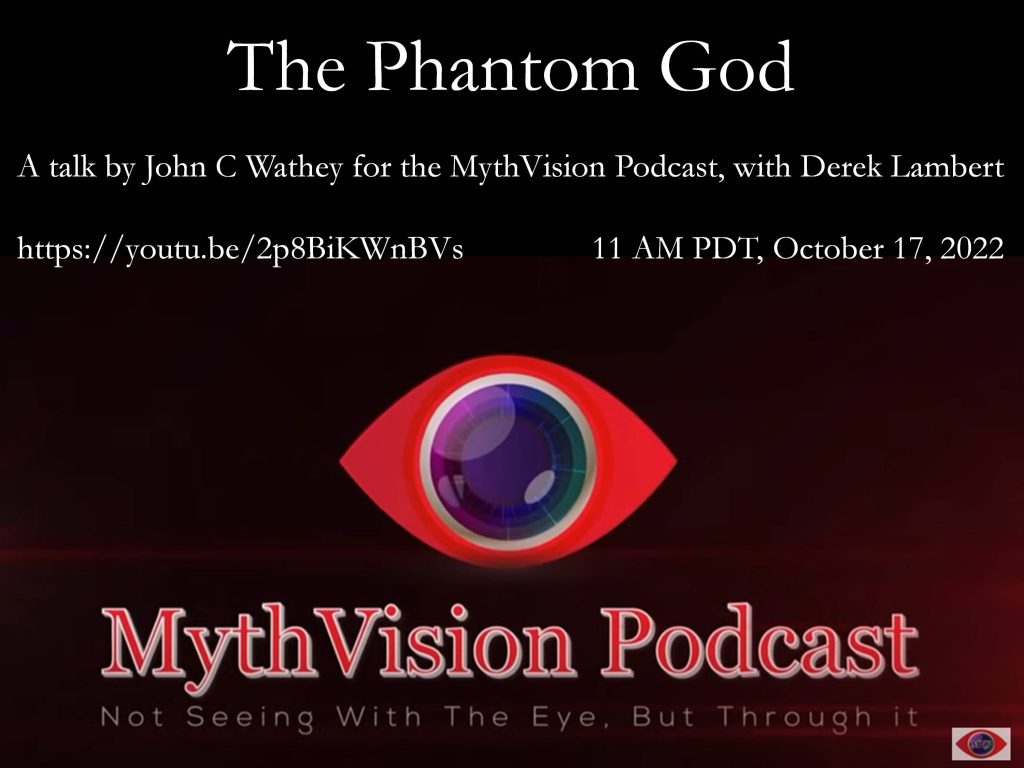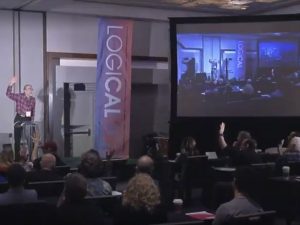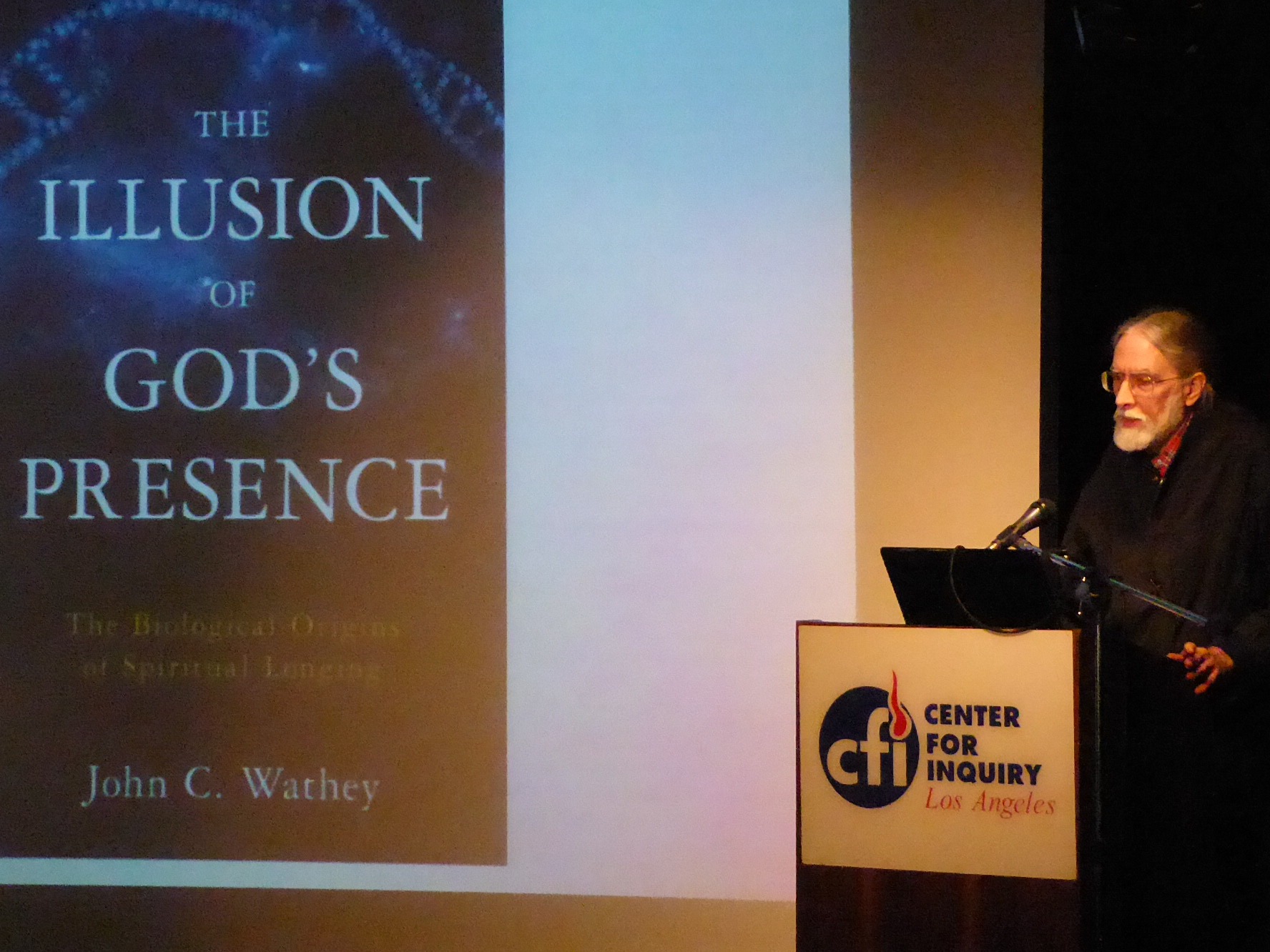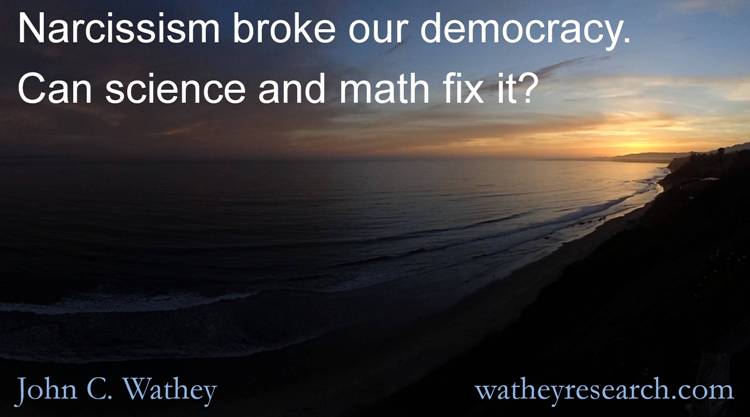Talks
Check this page for videos of my talks and for information about requesting me as a speaker for your group. For a schedule of upcoming talks, see Coming Events. To hear my media interviews, click here.
At present I have prepared three talks. The Phantom God is about my latest book and emphasizes insights from neuroscience about religious and spiritual feelings. You can find several different presentations of this on YouTube; the link below is the talk I did for Derek Lambert's MythVision podcast. After the talk, Derek and I had a long conversation in which he described the personal struggles that ultimately led him away from religion and toward a more honest and fulfulling life. My second talk, The Illusion of God's Presence, conveys an impression of my first book and emphasizes mainly psychological, behavioral, and evolutionary aspects of spiritual longing. You can see two different versions via the links below. My third talk is not about religion but instead reflects my interests in the psychology and evolution of human intuition, how this affects voting behavior, and how we might fix our broken electoral system. I first gave a version of this talk in March of 2021 for the AHA Freethought Festival in Madison, WI. The link below is the talk I did for the Humanist Society of Santa Barbara, where I used the title Narcissism Broke Our Democracy. Can Science and Math Fix It?
To request me as a speaker, please use the Contact page. I am happy to speak on the subjects listed here to any interested group, secular or religious, academic or general public. I am less happy about debating but will consider it if asked. I will gladly speak to chapters of the Secular Student Alliance anywhere, and I will forego any travel reimbursement for chapters in San Diego county.
The Phantom God 17 October 2022, MythVision Podcast with Derek Lambert. (59 min; Interview/Q&A 65 min)
Does neuroscience have anything to say about the existence of God or the basis of human spiritual beliefs? Many books have been written about this, but most have strayed from the scientific method. In this talk I take a more rigorous approach, emphasizing two big ideas. One is religious compulsion, which includes the tenacity of religious belief and the religious obsession with sex. The other is religious phantoms: the idea that the feeling of God’s presence is a phantom sensation, directly analogous to the phantom limb of an amputee. Here I explore how the brain handles embodiment and the fascinating illusions that happen when the circuitry of embodiment goes awry. After the talk, Derek and I have a wide-ranging and personal conversation, followed by Q&A with the viewers.
The Illusion of God's Presence 10 February 2018, LogiCAL-LA, Los Angeles. (40 min; Q&A 6 min)
This is an overview of the central thesis of my first book, similar to my talk at the Center for Inquiry (below), but with more emphasis on the strange puzzles of religion that my hypothesis can explain. Why is God two-faced: both judgmental and unconditionally loving? Why are women more religious than men? Why do seven percent of members of the National Academy of Sciences believe in a personal god who answers prayer? Using examples from visual illusions, behavioral biology, and neuroscience, I offer an explanation in terms of a cognitively impenetrable illusion, one that science has largely overlooked.
The Illusion of God's Presence 15 January 2017, Center for Inquiry, Los Angeles. (55 min; Q&A 23 min)
Science has only begun to make sense of religion’s powerful grip on the human mind, a grip that can even hold some of the most brilliant of scientific minds. Why do seven percent of members of the National Academy of Sciences believe in a personal god who answers prayer? The question is important because it probes the most irresistible essence of the appeal of religious and spiritual thinking. Using examples from visual illusions, behavioral biology, and neuroscience, I offer an explanation in terms of a cognitively impenetrable illusion, one that science has largely overlooked.
Narcissism Broke Our Democracy. Can Science and Math Fix It? 16 October 2021, Humanist Society of Santa Barbara. (via Zoom, 46 min; Q&A 21 min)
Democracy is about people governing themselves by expressing their collective will in elections. But what happens when their votes are driven more by intuition and passion than by reason? And what if the electoral system responds more to extremist minorities than to the will of the majority? In this talk I examine the role of narcissism in the passions that lead us astray in the voting booth. The bad news is that this problem has deep roots in human nature, so it will always be with us. The good news, however, is that the wisdom of crowds often works out well anyway, but only if our elections truly reflect the will of the majority. Surprisingly, science and math have a lot to say about that. Electoral reform is a nonpartisan issue, and I have deliberately made this talk balanced and nonpartisan so that it may be presented at meetings of 501(c)(3) organizations.




